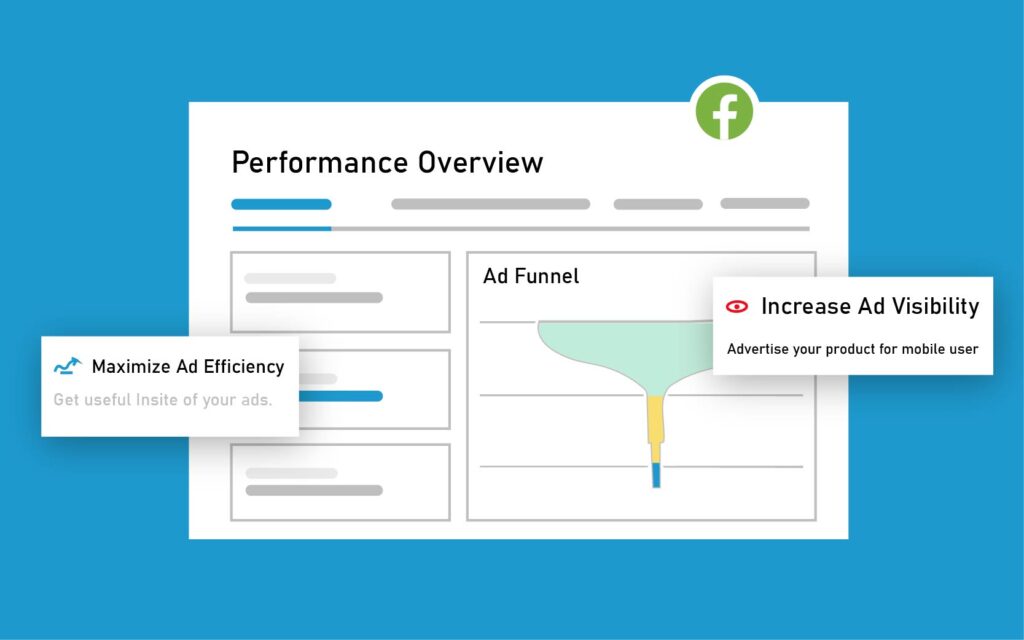
LinkedIn Client Hunting Course in Mohakhali
LinkedIn is more than just a platform for networking; it’s a powerful tool for finding

If you want my team to manage your good marketing for you, click here
Just as the digital landscape continues to evolve, so do the strategies for effective marketing. In Shahbagh, he, she, and they can enhance their skills through a comprehensive Facebook Marketing Course designed to equip participants with the latest techniques and tools for successful social media advertising. This guide will explore key course offerings, highlight expert instructors, and provide valuable insights to help individuals make informed decisions about advancing their marketing careers. With Facebook’s expansive reach, this course represents a significant opportunity for anyone looking to master this important platform.
Your approach to Facebook marketing can be divided into several distinct types, each with its unique advantages and strategies:
Assume that understanding these types will empower marketers to choose the right strategy for their objectives.
| Type | Description |
| Organic Marketing | Utilizes free methods to engage audiences. |
| Paid Advertising | Involves spending money to promote content. |
| Content Marketing | Focuses on creating valuable content for users. |
| Influencer Marketing | Collaborates with influential figures for promotions. |
| Event Promotion | Highlights specific events to drive engagement. |
You can leverage organic marketing on Facebook through consistent posting, engaging with followers, and creating shareable content. Marketers should focus on building a community around their brand, encouraging interactions, and utilizing free tools like Facebook Groups to enhance visibility without incurring costs.
If they decide to engage in paid advertising, marketers can target specific demographics effectively. This includes defining audiences based on interests, behaviors, and connections to optimize results.
Understanding the nuances of Facebook paid advertising is important for achieving optimal results. This strategy allows marketers to utilize various formats, such as photo ads, video ads, and carousel ads, to showcase products or services. By analyzing performance metrics, they can refine their campaigns, boost engagement, and increase conversion rates over time. Implementing effective A/B testing can further enhance the efficacy of their advertising efforts.

Assuming one seeks to excel in Facebook marketing, they must focus on several key factors that drive success. These include:
Thou must understand that mastering these factors helps in creating impactful Facebook marketing campaigns.
Target audience identification is vital for effective Facebook marketing. By knowing who they are trying to reach, marketers can tailor their content to engage the right people. Understanding demographics, interests, and behaviors allows for more impactful outreach and marketing strategies.
If one wants to succeed on Facebook, developing a solid content strategy is fundamental. This strategy encompasses the type of content shared, the posting frequency, and the overall message conveyed to the audience. A well-thought-out content plan ensures that engagement remains high and audiences are consistently informed and entertained.
It is vital for marketers to create diverse content that resonates with their audience. They need to consider various formats, such as videos, images, and articles, to capture attention effectively. With consistent analysis of engagement metrics, they can adjust their approach to maintain relevance and foster stronger connections with their followers.
There’s a systematic approach to mastering Facebook marketing that anyone can follow. This guide outlines necessary steps and strategies that will enhance their digital marketing efforts on this powerful platform.
| Steps | Description |
|---|---|
| Setting Up a Business Page | Creating a professional presence on Facebook is the first step. |
| Creating and Scheduling Content | Consistent content is key to keeping the audience engaged. |
Guide to setting up a business page involves several important steps. He or she needs to navigate to the Facebook business section and select the option to create a new page. It’s necessary to provide accurate information such as the business name, category, and description. Uploading a professional profile picture and cover photo will help establish a strong visual identity, ensuring potential customers recognize the brand.
Assuming he or she has established their business page, the next step is generating and scheduling content. Quality content attracts engagement and drives traffic to the page. By utilizing Facebook’s publishing tools, they can create a content calendar to plan posts in advance, maintaining consistency while focusing on diverse formats.
Marketing on Facebook requires a strategy that aligns with the target audience’s preferences. They should consider varying the types of content shared, such as text posts, images, videos, and live streams, to keep the audience engaged. Scheduling posts during peak engagement times can significantly boost visibility and interaction. By analyzing the performance of published content through Facebook Insights, they can refine their approach for future posts, ensuring sustained growth and influence on the platform.
Many individuals looking to enhance their Facebook marketing strategies can benefit from these crucial tips:
The essence of effective Facebook marketing lies in understanding the audience and continuously optimizing tactics.
To foster meaningful interactions, he or she should focus on crafting content that encourages likes, shares, and comments. Regularly hosting contests, polls, or Q&A sessions can help keep the audience involved while promoting brand loyalty. Additionally, responding promptly to inquiries will create a sense of community and engagement.
Some individuals underestimate the importance of analyzing their Facebook performance. Tracking key metrics such as reach, engagement, and conversion rates is vital for understanding what strategies work best. Regular analysis enables marketers to refine their approach and make data-driven decisions.
It is crucial to utilize Facebook Insights and other analytical tools to gather comprehensive data on audience behavior. By identifying which posts perform well and at what times engagement peaks, they can better tailor content to suit their audience’s preferences. Implementing consistent tracking allows for real-time adjustments, resulting in more effective marketing campaigns.
After analyzing various aspects of Facebook marketing, they can identify several advantages and disadvantages. Below is a table summarizing these pros and cons.
| Pros | Cons |
|---|---|
| Wide Audience Reach | Constant Algorithm Changes |
| Targeted Advertising | Ad Fatigue |
| Engagement Opportunities | High Competition |
| Cost-Effective Options | Privacy Concerns |
| Rich Analytics | Time-Consuming Management |
Marketing on Facebook offers numerous benefits, including the ability to reach a vast audience and engage directly with customers. The platform’s targeted advertising options allow businesses to focus on specific demographics, enhancing the effectiveness of their campaigns. Furthermore, the rich analytics provided by Facebook help marketers track performance and adapt their strategies for better results.
To effectively utilize Facebook for marketing, they must navigate various challenges and limitations. These can hinder the overall success of their campaigns.
A common challenge faced by marketers is the frequent algorithm changes within Facebook, which can significantly affect visibility and engagement. Additionally, there is the issue of ad fatigue, where users become desensitized to repeated advertisements, leading to decreased interaction. High competition also means that standing out in a crowded marketplace can be difficult. Lastly, the increasing concerns over privacy may lead to greater scrutiny of marketing practices on the platform, impacting user trust and engagement.
Considering all points, the Facebook Marketing Course in Shahbagh offers invaluable insights and skills for individuals looking to enhance their digital marketing expertise. Participants will gain a comprehensive understanding of Facebook’s platform, enabling them to create effective marketing strategies tailored to their target audience. With expert instruction and practical applications, they will be well-equipped to navigate the evolving landscape of social media marketing, making it a worthwhile investment for anyone aiming to advance their career in the field.
It is really a win-win situation 😲 for you to join the “Digital Wit Academy” Facebook group and gain the most updated information about different digital marketing strategies.

Kamrul Hassan is the founder and CEO of Digital Wit Academy. As you know, Digital Wit Academy is a fast-growing Bangla e-learning platform that provides quality knowledge and support to students. Kamrul Hassan is a government-certified Professional Digital Marketing Expert and a trainer/mentor in the Youth and sports ministry projects of the BD government. His Team Digital Wit Academy consists of well-educated and highly motivated core team members who are very friendly. They believe in quality support to make the students’ careers more successful. Support is the best part of the Digital Wit Academy courses.

Stop wasting money and unlock the hidden potential of your advertising skills with Digital Wit Academy.

LinkedIn is more than just a platform for networking; it’s a powerful tool for finding

Most professionals are aware of LinkedIn’s potential as a powerful tool for networking and client

Course participants will discover the art of leveraging LinkedIn client hunting to attract effectively. In

With the rise of digital networking, mastering LinkedIn for client acquisition has never been more

There’s an exciting opportunity for professionals seeking to enhance their networking skills through my LinkedIn
Hey, I’m Kamrul Hassan, the mastermind of Digital Wit. I’m confident to grow your brand. My only question is, will you grab the opportunity?